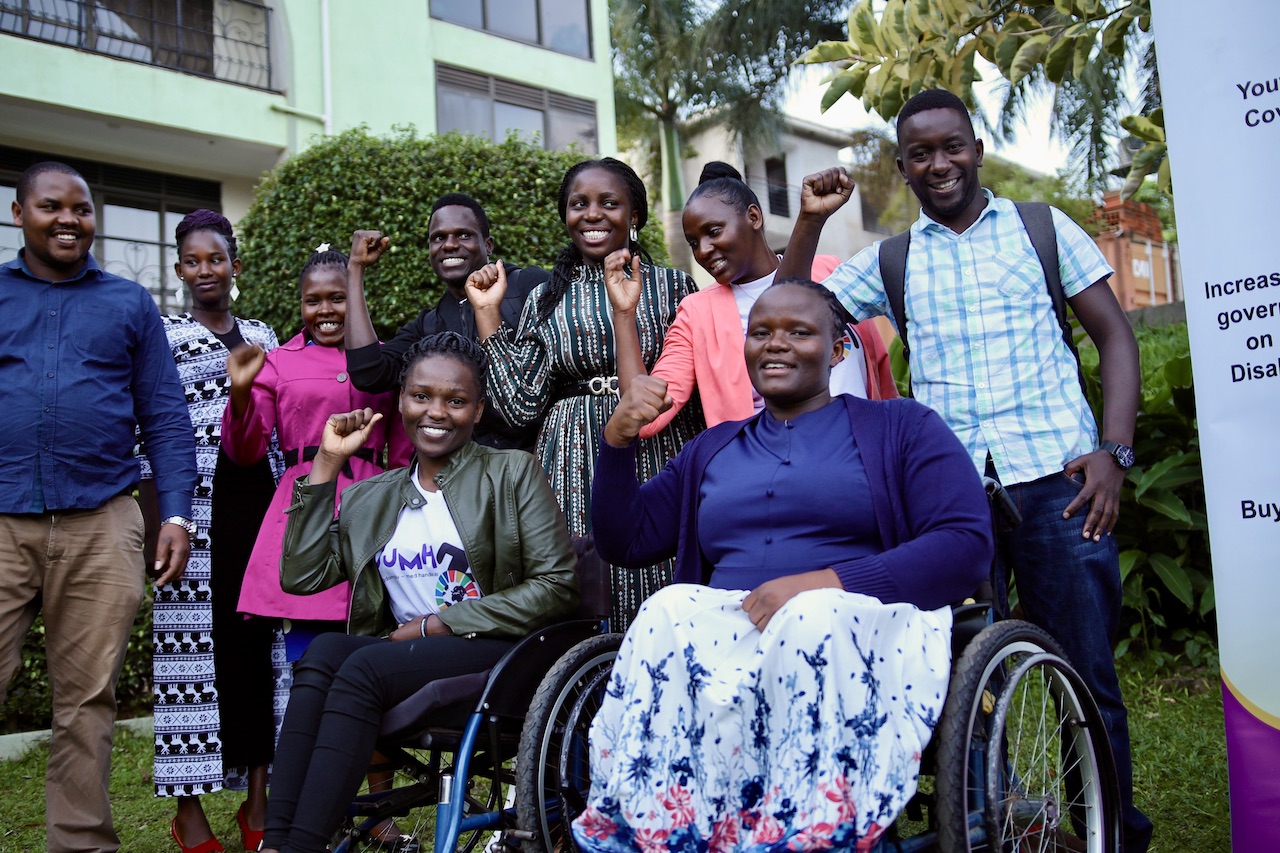The principle of ‘nothing about us without us‘ must be upheld in national and international actions concerning disability rights. We should also find innovative ways to work in partnership with different actors. Traditional dynamics between States, the UNS, OPDs, other civil society organizations (CSOs), donors and other stakeholders will not lead us to the systemic transformations that are needed to advance the disability agenda.
Genuine partnerships mean that grassroots, community level organizations must be empowered and leveraged, their leadership and their core capacities strengthened. This requires investment from States, the UNS and other donors. OPDs carry out crucial work on the ground and they have much to teach and valuable experiences to share. Success cases of States, the UNS and donors helping to bolster women’s rights grassroots organizations could be used as models to replicate in the OPD movement, so that they are able to directly receive the support they need.
National Human Rights Institutions (NHRIs) can play an important role in creating an enabling environment to bring OPDs into policy conversations. Many NHRIs have a disability focal point, and they also have a formal role as independent mechanisms for monitoring of implementation under the CRPD at the national level. As such, they serve as a bridge not only between the government and the CRPD Committee, but also between the government and OPDs to support the latter in all aspects of CRPD implementation and monitoring. Parliaments should also be involved in conversations about disability rights. The International Parliamentary Union (IPU) could be a valuable ally in raising disability inclusion across parliamentary agendas. Interesting alliances could be forged among UN country teams, NHRIs, parliaments and OPDs. Academic and research institutions should also be actively engaged.
Disability rights organizations can also play a key role in mainstreaming disability into other sectors through cross-movement collaboration and cross-fertilization to create a broad base of support (‘nothing without us’ and ‘nothing only with us’). While some OPDs have been taking action to diversify their agenda by participating in national, regional and international discussions and initiatives related to issues such as security, culture and protection of the environment, including climate change, further efforts and resources are needed on the part of States and the UNS to support their participation and engagement across these spaces and movements.
Mainstream rights organizations could visibly incorporate a disability perspective into their agendas. OPDs can also strengthen their knowledge from the experiences, successes and lessons learned of other sectors, particularly feminism. Disability expertise should also be leveraged in solidarity with the older persons movement, to ensure that any new standards adopted in relation to older persons rights are consistent with existing human rights standards in the field of disability rights. Inter-sectoral collaboration will also highlight the need to address the multiple and intersecting forms of discrimination faced by different groups. More efforts are needed to put solidarity into practice by the disability movement on the one side, and other human rights and social justice movements on the other.
There are also areas of opportunity to enhance the collaboration and partnerships between the UN System and the disability movement, while underscoring and embracing the diversity of the movement. Funding, access, capacity strengthening and co-design of solutions are required to increase the participation of OPDs in UN meetings, conferences, services, international human rights mechanisms and of information and communications in general. With the increased attention to disability rights and inclusion has come increased demand on OPDs by governments and the UNS for inputs and consultation. Recognizing OPDs as a valuable resource requires investing in them, including to support their organizational development so that they are better equipped to respond to these demands and continue to develop and flourish. Proactive efforts are needed from States, the UN and larger civil society organizations to broadly disseminate UN norms, standards and policies (including resolutions) in accessible languages and formats and to translate them into concrete collaborative efforts on the ground. There are positive examples of UN agencies explicitly committing to enhance their collaboration with OPDs, including in the field. Guidelines for engagement with OPDs have been developed by some agencies.
